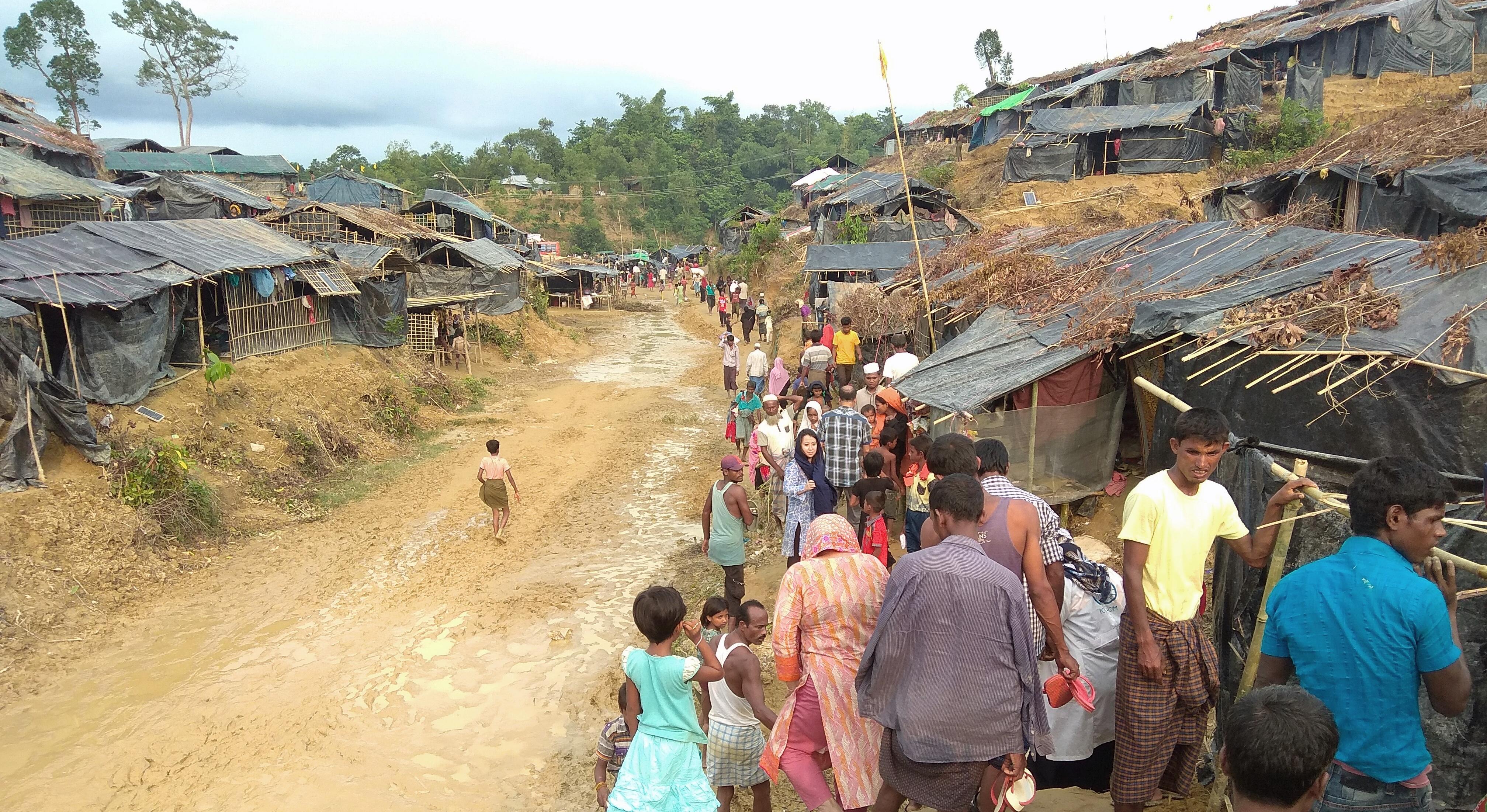UNFPA takes the lead in supporting survivors of sexual assault and other violence
Cox’s Bazar, Bangladesh - When Shakila* arrived at a UNFPA Women Friendly Space in Cox's Bazar, Bangladesh she was exhausted and traumatized. Having fled the violence in Myanmar’s Rakhine State, the 36-year-old Rohingya refugee needed urgent medical services for the sexual violence she had suffered. UNFPA-trained personnel tended to her immediate needs, but the emotional scars from seeing her husband and baby girl killed in front of her will be tougher to heal.
Shakila is just one over 480,000 Rohingya refugess - over half of them women and girls - who have poured into Cox’s Bazar since August 25. UNFPA estimates that 120,000 of these refugees are women of reproductive age and 24,000 are pregnant or breastfeeding. They join the approximately 200,000 Rohingya refugees who had already fled there in recent years.
Gender-based violence, including rape and sexual assault, is a key concern that has emerged from the ongoing humanitarian crisis.
UNFPA has already provided a range of services to more than 7000 women via five Women Friendly Spaces (with plans to scale up to 15 by the end of the year), as well as community watch groups and medical camps where health personnel are offering medical assistance and psychosocial counselling assistance amid incredibly challenging circumstances.
Like Shakila, many Rohingya women and girls are sharing horrific stories. More than half of the gender-based violence incidents reported so far to UNFPA and its partners by Rohingya women refugees in Bangladesh are sexual assault, an exceptionally high proportion. This speaks to a very worrying trend.
As the lead UN agency globally on addressing gender-based violence in emergencies, UNFPA is scaling up its response in Bangladesh to support survivors as well as women and girls who require reproductive health care and other support. Yet given the scale of the crisis, UNFPA and other United Nations agencies, along with Government and civil society partners, are struggling to meet the rapidly rising demand for services. UNFPA alone needs an additional US$13 million to meet the demand for services over the next six months.
'Tip of the iceberg'
Over the past month, hundreds of Rohingya women and girls have received services for prevention and management of gender-based violence. Yet this is just the tip of the iceberg. UNFPA and its partners are far from reaching all the women and girls who need our help to resume their lives with strength and resilience.
For every woman like Shakila who seeks treatment or speaks out about her ordeal, many others do not because of concerns of survivors regarding safety, confidentiality, shame and stigma. This is what makes it challenging to come up with accurate numbers of gender-based violence survivors.
The full extent of the crisis is always underreported. This happens unfortunately across humanitarian crises globally, with women and girls disproportionately affected, their specific needs not addressed adequately.
Also, the very availability of services to respond to gender-based violence, provided in an as safe an environment as possible, gives survivors the confidence to come forward and seek support.
However, regardless of numbers, what is of paramount importance is that each and every survivor of gender-based violence who needs such services must receive them in an environment that respects her right to self-determination, privacy and confidentiality, ensuring her safety and, in so doing, helping her regain or strengthen her sense of dignity.
This is UNFPA’s responsibility and mandate; UNFPA takes this very seriously and calls on all partners to stand with us for these principles.
“The suffering of women and girls in the Rohingya crisis cannot be overstated,” emphasises UNFPA's Acting Executive Director, Dr. Natalia Kanem. “The health and safety of women and girls must be protected. All women and girls, regardless of their ethnicity or religious affiliations, must have access to health care and other essential services without discrimination, and they must be protected from all forms of violence, including sexual assault.”
When 30-year-old Fatima came to a UNFPA Women Friendly Space, she initially refused to speak, but after several visits she shared her story with the case workers she had come to trust. "My sister was killed after gang rape in front of me, and they threw hot water on my body. I can't sleep, my life is a nightmare, I can't bear the pain of losing my sister." Fatima now comes regularly to the Women Friendly Space which she calls "shanti ghar" - a safe haven where she finds support and some peace.
UNFPA pledges its support to all affected women and girls in Bangladesh and Myanmar now, and in the future.
For further information, please contact:
Roy Wadia . Tel +66 848 752 634 / wadia@unfpa.org
Matthew Taylor. Tel: +66 84 438 2815 / taylor@unfpa.org
*Names changed for confidentiality



